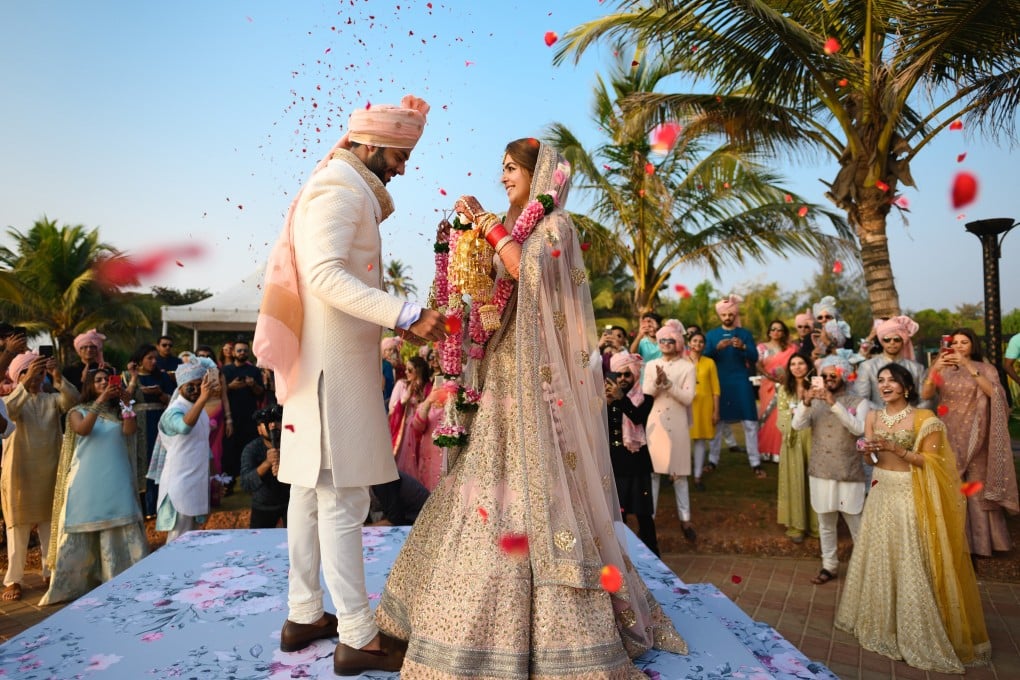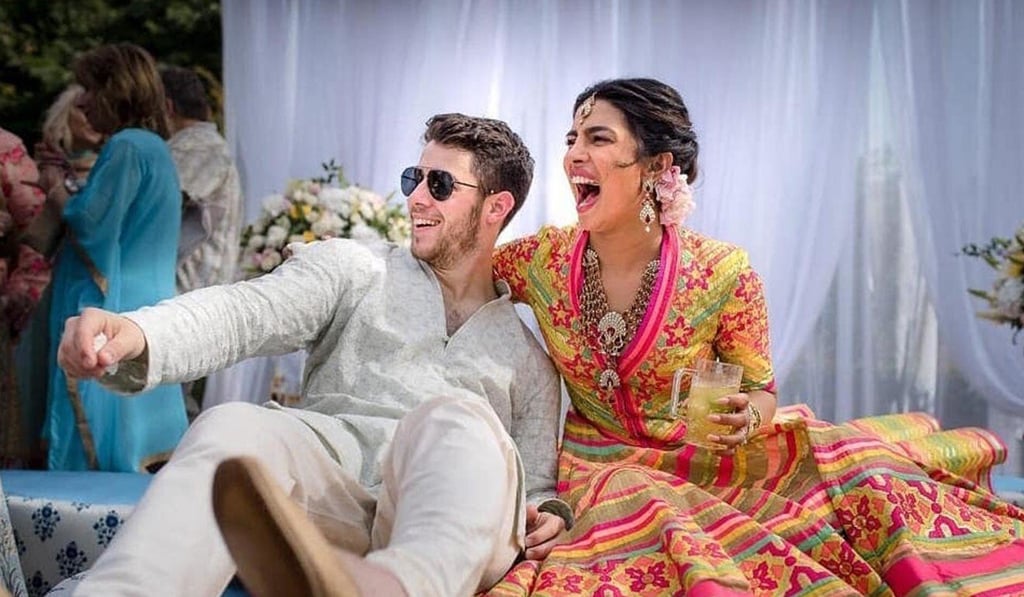Advertisement
India’s lavish weddings, sidelined by the coronavirus, are back at the altar
- The country’s wedding industry is gearing up for a surge in business, despite updated Covid-19 restrictions capping celebrations at 200 people
- With auspicious dates available for a limited period, matchmakers are also scrambling to clear backlogs of postponed weddings
Reading Time:5 minutes
Why you can trust SCMP

The US$50 billion Indian wedding industry, knocked on its lavish backside during the coronavirus lockdown that started in March, is set to return with a flourish.
Known for their opulence, with guest lists running into the thousands for elaborate banquets and ostentatious displays of wealth, most Indian weddings were either postponed or whittled down to small, intimate affairs during the coronavirus lockdown, sometimes turned into online proceedings held over Zoom or otherwise streamed online.
But those involved in the business side of the wedding industry say they are now gearing up for a busy winter season that traditionally starts on November 25 – when a flurry of auspicious Hindu astral calendar dates begin.
The recent news that promising Covid-19 vaccines will soon be made available globally, combined with the relaxation of lockdown restrictions across India and package deals on offer by luxury hotels and resorts, have generated renewed optimism within the industry and from couples who were forced to put off their weddings plans.
Advertisement
India’s loosened pandemic restrictions since the first nationwide lockdown ended in late May allow for social gatherings including weddings, although potential brides and grooms are mostly thrilled that wedding parties will nevertheless be capped at 200 guests. This means only close relatives and friends will be invited to most weddings, translating into major savings for the couples-to-be and their families, who would normally be on the hook for inviting several hundred or even thousands of people, including distant relatives and even entire hometowns for fear of social opprobrium.

Advertisement
Akash Agarwal, the co-founder of Mumbai-based wedding photography and filming firm WeddingNama, said when India’s lockdown came into force in March, “our business came to a grinding halt”.
Advertisement
Select Voice
Select Speed
1.00x